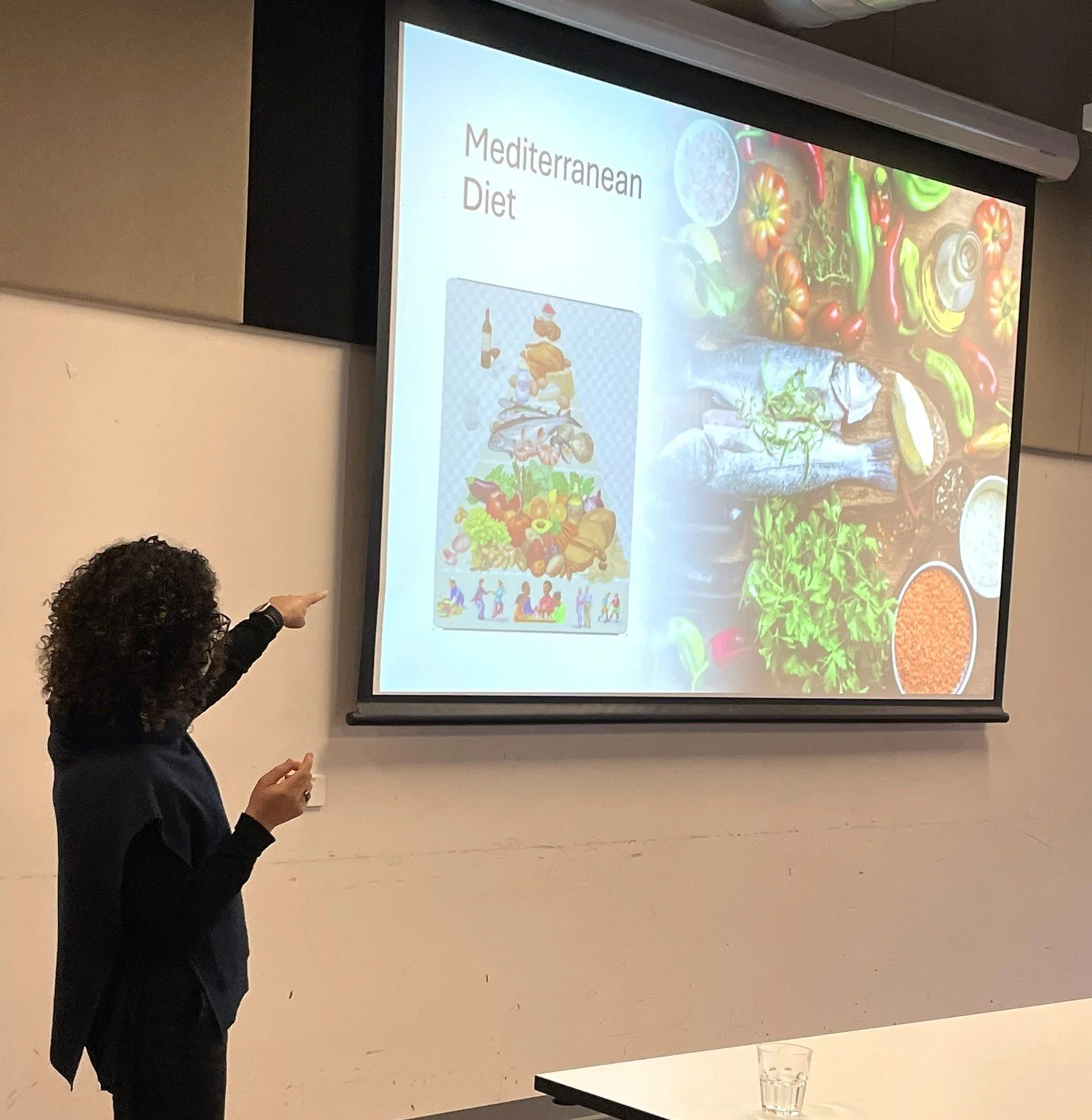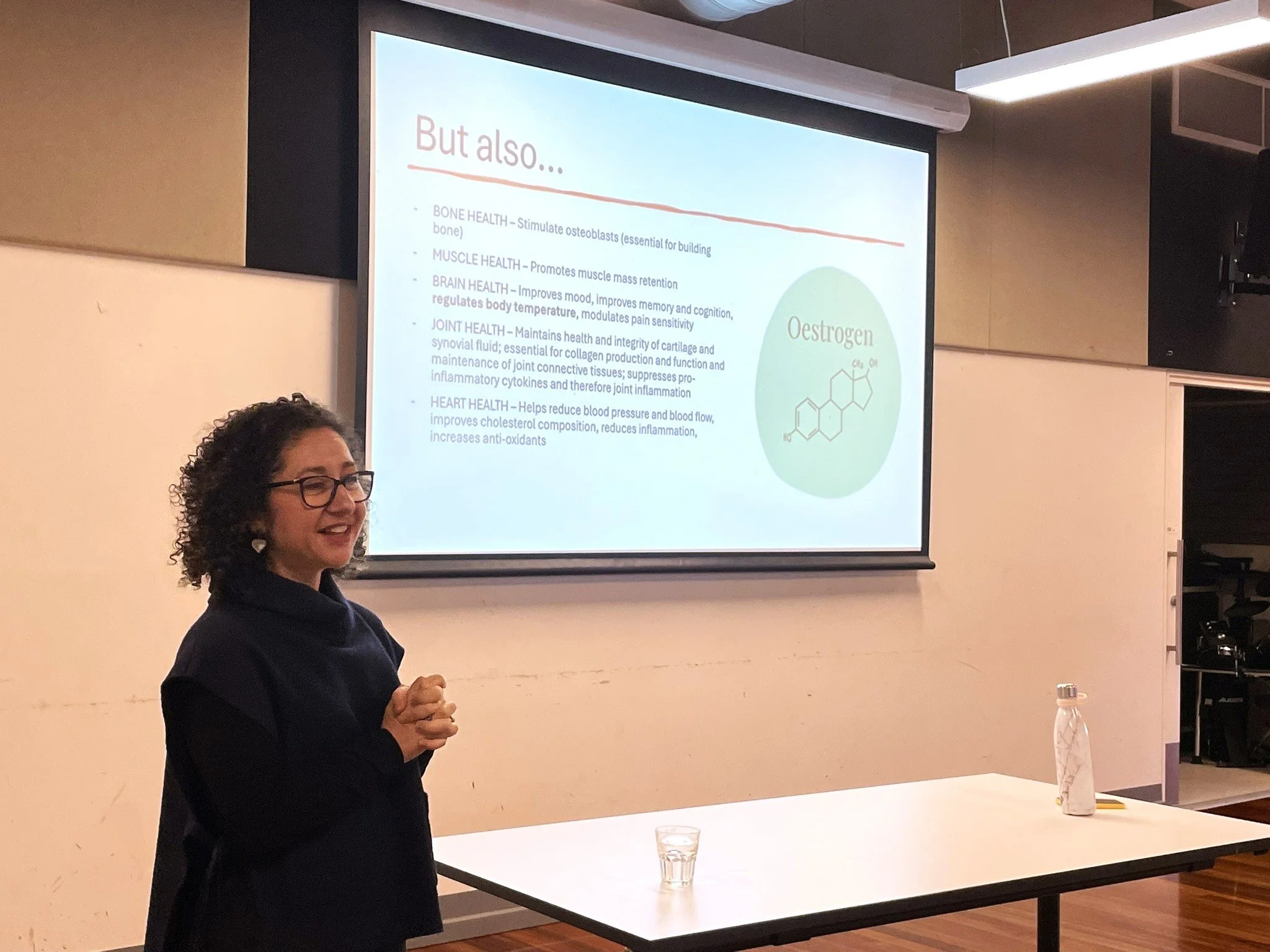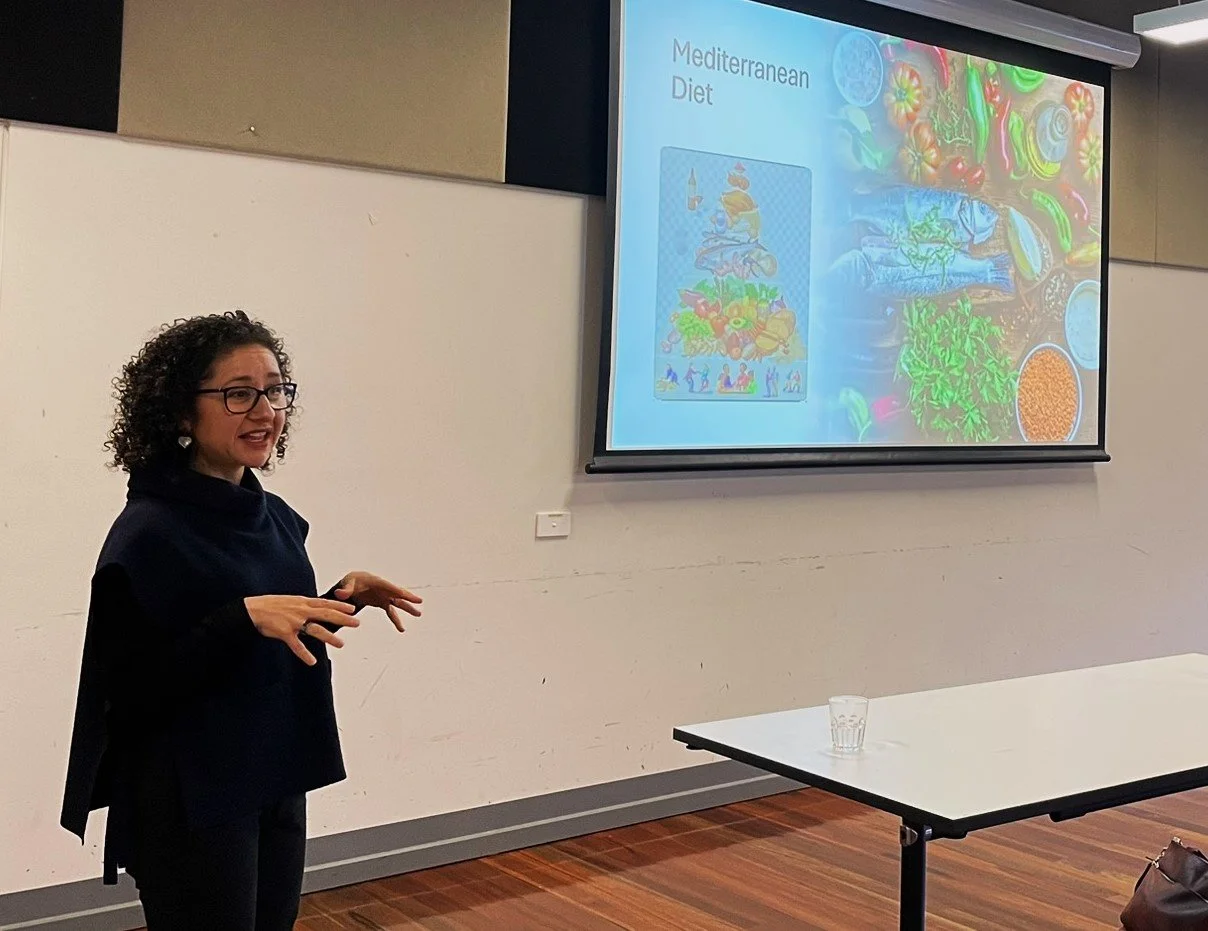Menopause, Misdiagnosis & Mates:
Why Connection belongs as the foundation block of the Nutrition Pyramid
Reflections from our recent event with Dr Marina McPherson
Author: Belinda Young
Let’s be honest: menopause doesn’t arrive quietly. It can sneak up on you while you're minding your own business, maybe trying to remember where you left your keys (again), or wondering if it’s just hot in here, or if you’re having a spontaneous combustion moment.
In May, a group of us gathered with the brilliant Dr Marina McPherson to talk all things menopause: expectations, myths, and the rollercoaster of symptoms that come with the territory. What stood out most wasn’t just the science or the strategies (though those were excellent). It was one image Marina shared that completely reframed how we think about health during menopause.
It was the classic nutrition pyramid… but with a twist. Sitting proudly at the base wasn’t "whole grains" or "leafy greens", it was connection. Yep, healthy relationships, friendships, and community were the literal foundation of wellbeing. Cue the collective nods (and maybe a few emotional blinks) from everyone in the room.
Because here’s the thing: menopause isn’t just about hormones. It’s about being seen. And for far too long, women experiencing menopause haven’t been.
For centuries, women presenting with symptoms of menopause, from anxiety to brain fog to physical pain, were told they were hysterical, unstable, or simply "getting old". Many were institutionalised, their very real suffering dismissed as madness. Some were sent to asylums with vague diagnoses like “climacteric insanity,” a catch-all term used to justify locking women away during midlife changes. Their medical notes often vanished; their stories, buried.
And while we’d like to believe things have moved on, the truth is: the shadow of that history lingers.
A growing body of research shows that women experiencing perimenopause and menopause are still being misdiagnosed or brushed off by health professionals. What might actually be hormonal shifts are too often labelled as anxiety, depression, or cognitive decline. One UK study found that 1 in 10 women leave the workforce due to unmanaged menopausal symptoms. In Australia, many turn to Google or each other before they ever get answers from a GP.
The recent Victorian Government Inquiry into Women’s Pain confirmed what many of us already knew from lived experience: women’s pain, especially around reproductive health, is too often ignored, under-researched, and underfunded. The report laid bare the stories of women who spent years, sometimes decades, seeking answers for pain and symptoms that were real but repeatedly dismissed.
Menopause, unfortunately, is often part of that same pattern.
So it’s no wonder that the simple act of sitting in a room together—nodding along, sharing stories, even laughing about those mid-sentence memory blanks, felt so revolutionary. Because at its heart, it reminded us of what Mums of the Hills was built on: connection as a form of care.
We’re not here to sell you supplements or promise the perfect night’s sleep (although if you find the secret, please post it in the group). We’re here to build that foundation—one conversation, one cuppa, one community event at a time. Because when you’ve got people around you who get it, suddenly things feel a little more manageable. Less lonely. Even, dare we say…empowering.
So whether you’re deep in the throes of night sweats, or just starting to wonder why your memory has turned to scrambled eggs, know this: you don’t have to do it alone. We’re here. Your village is here. And sometimes, the best thing for your hormones is a good laugh and someone who’ll nod along when you say, “I swear I used to be able to function.”
Menopause might not come with a user manual, but with connection as the foundation, we’re building something better, a community where every stage of womanhood is supported, celebrated, and understood.
💬 Missed the event? Here are some great resources to learn more:
Vic Gov Inquiry into Women’s Pain – Summary & Final Report
✨ Dr Marina McPherson will be back in the coming months with more health-focused talks—so stay tuned!
📅 And don’t miss our July 6th event, where we’ll hear the powerful story of Emma Gilmour’s journey to overcome alcohol dependence and finding herself again while parenting teens and discovering being neurodivergent.
Because every story shared adds another brick to our community foundation—and we are stronger, together.






